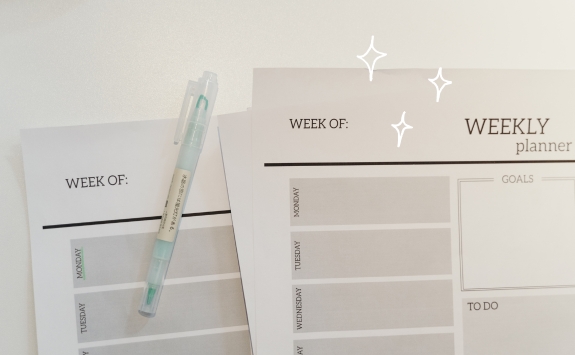After completing many years of studying, I know first-hand how challenging it can be to balance homework, coursework, exams, and social life. But I also learnt that taking care of my health and well-being is just as important as achieving academic success. In this post, I share the tips for maintaining healthy study habits I wish I’d know when I began my academic journey!
Firstly, let’s talk about setting a schedule. I found that having a routine was key to staying on top of coursework and avoiding procrastination. The best way to do this is to create a study schedule that works for you. Start by identifying your most productive times of the day and allocating your study time accordingly. I personally preferred studying in the morning, but you might find that you’re more productive in the evening. Whatever works for you, make sure to include breaks and time for self-care activities like exercise, hobbies, and socialising.

Speaking of breaks, taking them is crucial for maintaining focus and avoiding burnout. It’s easy to get caught up in coursework and forget to take care of ourselves, but this can lead to decreased productivity. I made sure to take regular breaks throughout the day to recharge and do something I enjoyed. Whether it’s taking a walk, cooking, or going to the gym, taking breaks will help you stay refreshed and energised.
Another important aspect of healthy study habits is staying organised. Keeping track of assignments, exams, and deadlines can be overwhelming, but it’s essential for academic success. I used a planner to jot down all my deadlines and to-do lists, but you can also use digital tools like Google Drive or Dropbox to keep your files and notes organized and easily accessible. A tidy workspace can also help you stay focused and reduce stress.

Getting enough sleep is crucial for overall health and academic performance. It’s easy to fall into the trap of staying up late to study or finish assignments, but this can be mentally tough. I made sure to aim for at least 7-8 hours of sleep per night to ensure I was well-rested and alert during the day. If you find it hard to fall asleep, try implementing a relaxing bedtime routine, such as reading or watching some TV.
Regular exercise is another great way to reduce stress, improve cognitive function, and boost overall health. Even if you don’t have time for a full workout, try to incorporate physical activity into your daily routine. I found that taking a walk or doing some yoga in the morning helped me feel more energized and focused for my studies.
Finally, prioritising self-care is essential for maintaining mental and emotional wellbeing. This includes activities that make you feel good and help you relax, such as spending time with friends and family. Taking care of yourself is just as important as studying for exams and should be a priority.
Maintaining healthy study habits is crucial for academic success and overall well-being. But don’t feel like you must do everything at once, nor everything that’s mentioned! You can start small and build from there. Remember, everyone’s journey is different and what works for me may not work for you. The key is to find what healthy study habits work best for you and make them a part of your routine. Remember to take care of yourself, and good luck on your academic journey!
Written by Sophie, a BSc International Business Management and Chinese student



